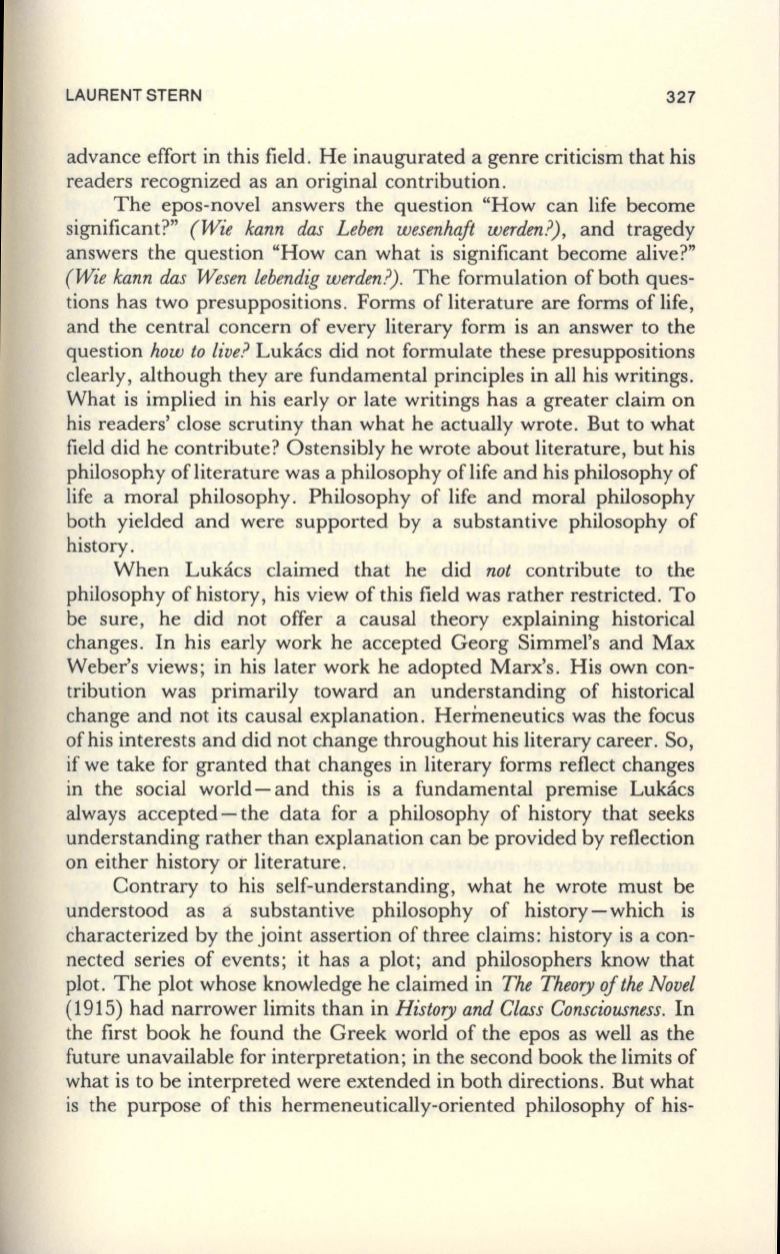
LAURENT STERN
327
advance effort in this field . He inaugurated a genre criticism that his
readers recognized as an original contribution.
The epos-novel answers the question "How can life become
significant?"
(Wie kann das Leben wesenhaJt werden?),
and tragedy
answers the question "How can what is significant become alive?"
(Wie kann das Wesen lebendig werden?).
The formulation of both ques–
tions has two presuppositions . Forms of literature are forms of life,
and the central concern of every literary form is an answer to the
question
how to live?
Lukacs did not formulate these presuppositions
clearly, although they are fundamental principles in all his writings.
What is implied in his early or late writings has a greater claim on
his readers' close scrutiny than what he actually wrote. But to what
field did he contribute? Ostensibly he wrote about literature, but his
philosophy of literature was a philosophy of life and his philosophy of
life a moral philosophy. Philosophy of life and moral philosophy
both yielded and were supported by a substantive philosophy of
history.
When Lukacs claimed that he did
not
contribute to the
philosophy of history, his view of this field was rather restricted. To
be sure, he did not offer a causal theory explaining historical
changes . In his early work he accepted Georg Simmel's and Max
Weber's views; in his later work he adopted Marx's. His own con–
tribution was primarily toward an understanding of historical
change and not its causal explanation. Hermeneutics was the focus
of his interests and did not change throughout his literary career. So,
if we take for granted that changes in literary forms reflect changes
in the social world - and this is a fundamental premise Lukacs
always accepted - the data for a philosophy of history that seeks
understanding rather than explanation can be provided by reflection
on either history ot literature .
Contrary to his self-understanding, what he wrote must be
understood as a substantive philosophy of history-which is
characterized by the joint assertion of three claims: history is a con–
nected series of events; it has a plot; and philosophers know that
plot. The plot whose knowledge he claimed in
The Theory
of
the Novel
(1915) had narrower limits than in
History and Class Consciousness.
In
the first book he found the Greek world of the epos as well as the
future unavailable for interpretation ; in the second book the limits of
what is to be interpreted were extended in both directions . But what
is the purpose of this hermeneutically-oriented philosophy of his-


